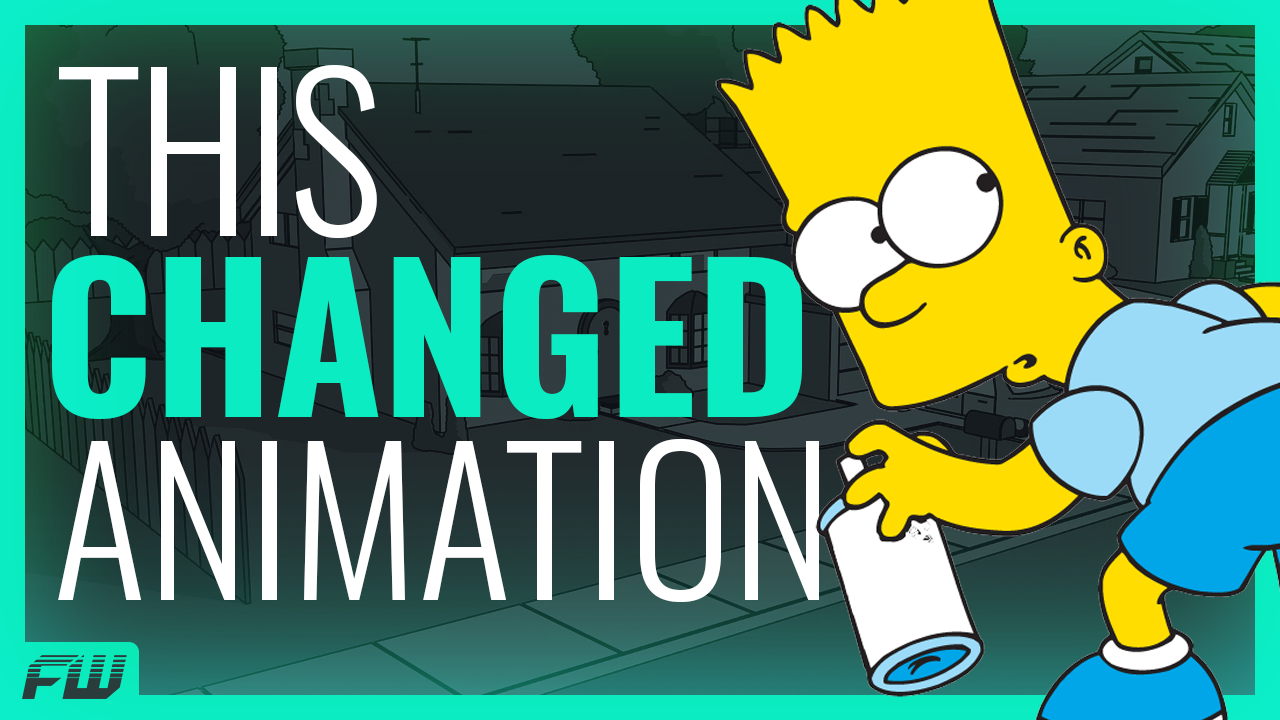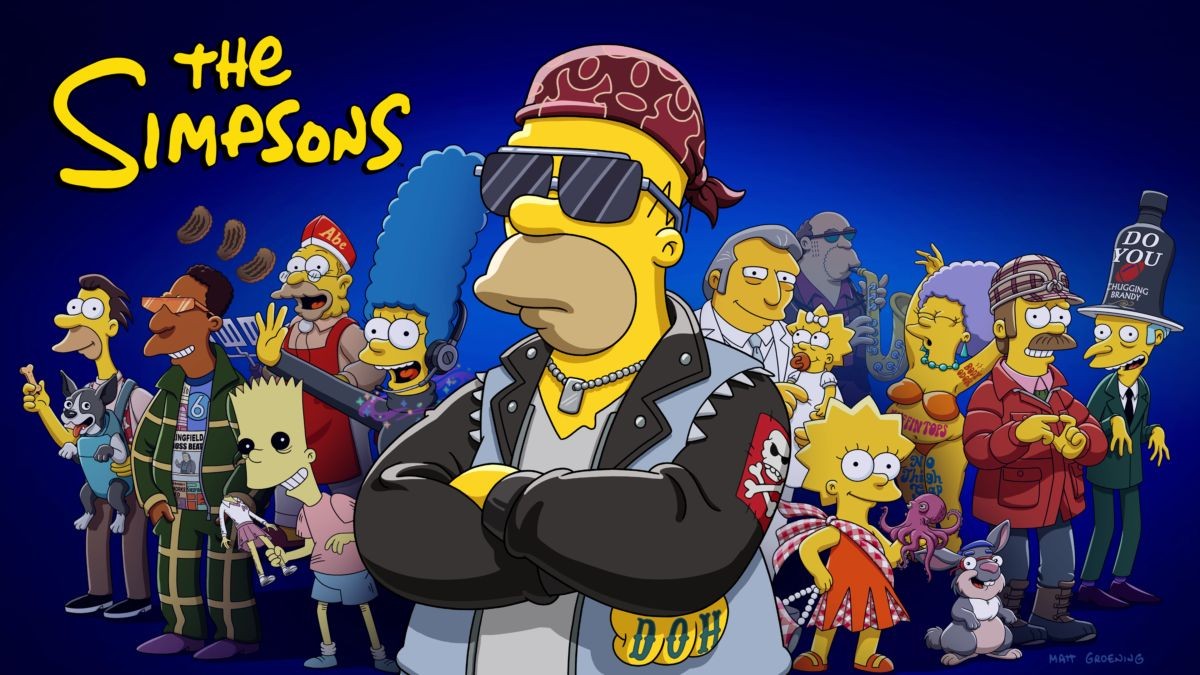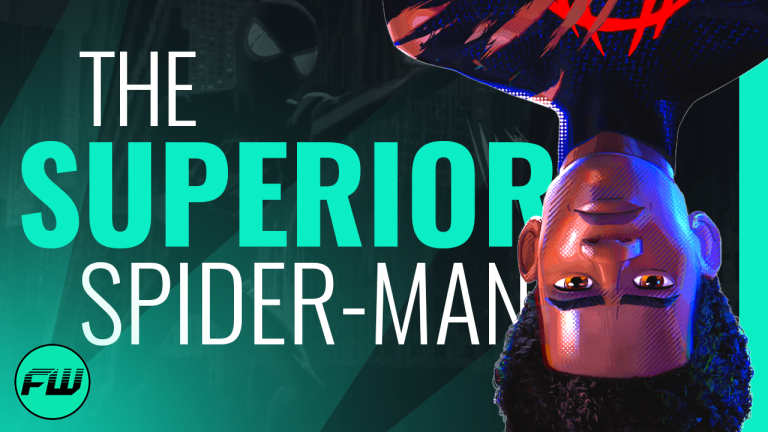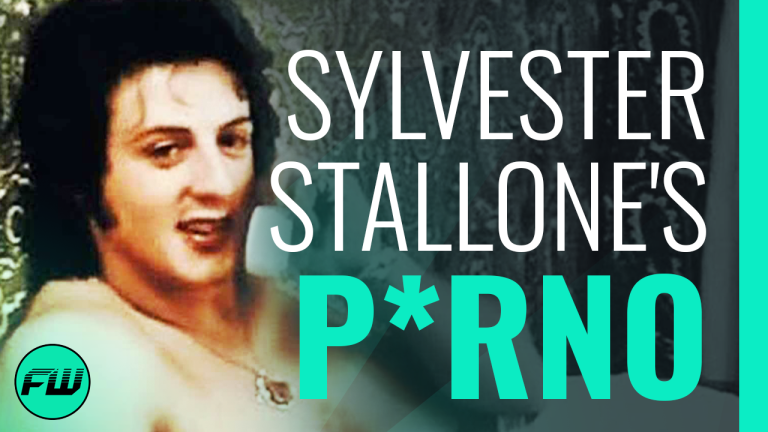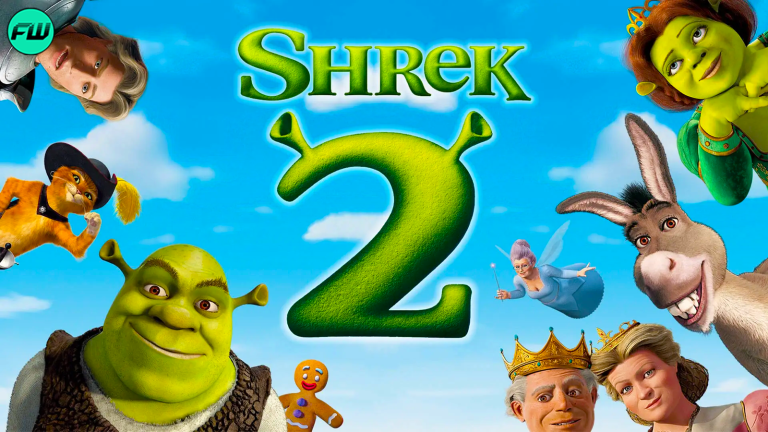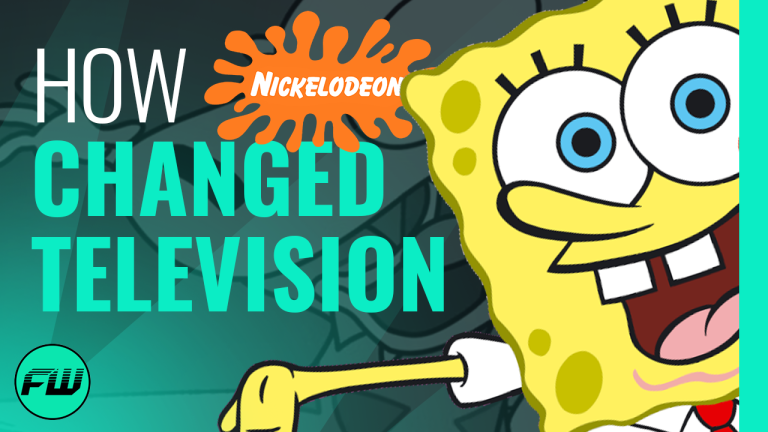In this FandomWire Video Essay, we explore how The Simpsons redefined animation.
Check out the video below:
Subscribe & hit the Notification Bell so you never miss a video!
The Simpsons Revolutionized Animation
The Simpsons, everyone’s favorite jaundice-suffering-animated family. The comical, and often heartfelt, hijinks of the titular nuclear family have been entertaining audiences for over 30 years and counting. Making it the longest-running scripted series on television. And not just the longest-running animated series, the longest-running series PERIOD. That would be an impressive accomplishment for any show, but it’s made even more monumental when looking back at The Simpsons’ modest beginnings. So, how did The Simpsons defy the odds and make television history? What makes it stand head and shoulders above the competition to dominate the world of syndicated animation and reign supreme as one of the greatest sitcoms ever made, while simultaneously redefining an entire medium of entertainment?
Family Guy creator Seth MacFarlane said: “The success of ‘The Simpsons’ really opened doors. It showed that if you were working in animation you didn’t necessarily have to be working in kids’ television.”
Just as The Marvel Cinematic Universe revolutionized the concept of shared world-building in film, The Simpsons revolutionized animation and broke down the barriers built upon the preconceived notion that animation had to be geared towards a younger audience.
To fully understand the success of The Simpsons, you have to go all the way back to when it started; not just back to 1989 when we were treated to a series of the eponymous family, but a few years further, to 1987, when the family were nothing more than time-filling-shorts before and after commercials on The Tracey Ullman Show. Looking back at those shorts, you’ll notice two things. 1. Everything is VERY rough compared to what we have today, even when compared to the first standalone season, itself a far cry from the polished finished characters we have now; and 2. The heart of the show hasn’t changed from then till now. It’s always been about the core family of five, and safe to say, it always will be. Homer’s a middle-aged man with anger issues and a drinking problem, among others. Marge is his dutiful wife who just wants a quiet life. Bart is the prank-playing and school-hating bad boy while Lisa is the opposite, a school-loving, grade-A-getting good girl with a future. All rounded off by baby Maggie that’ll spends as much time getting into her own unique brand of trouble as she does being on her mother’s hip.
Looking back at serialized animation before The Simpsons, you’ve got the big hits like The Flintstones, The Jetsons, Woody Woodpecker, Scooby-Doo, and more. Whilst each of these shows are amusing and fun in their own right, they’re not relatable, and there’s little chance of us putting ourselves in the character’s shoes, something we can do with The Simpsons incredibly easily. Homer and co. started off in a reasonably realistic fashion, with the first episode centering around Christmas and the lack of money for the family in the lead-up to the big day, it was all quite relatable. Ending with the family adopting an unwanted dog called Santa’s Little Helper, there’s a lesson about family being all you need at Christmas.
Come the second episode ‘Bart the Genius’, Bart passes off a quiz as his own in an attempt to skate through his school life, but this backfires and quickly he’s in a school for gifted children and having to pretend to understand concepts and lessons far higher in learning than his third-grade lessons beforehand. Of course, this ridiculous situation gets rectified by the end of the episode, but not before some zany, hair-raising scenarios occur. Typical sitcom fair following standard storytelling tropes and structure.
Within two episodes, The Simpsons will have shown you everything you need to know about the show. It’s half heart with genuine lessons to be learned if you look hard enough. And it’s half ridiculous and over-the-top situational comedy that’ll make you laugh as much as question the choices of its characters.
If you’re enjoying the video, please be sure to like, subscribe and hit that notification bell for more great content.
These days adult animation is a common form of cable entertainment with shows like South Park, Family Guy, Futurama, and Rick & Morty being popular fan favorites and rating hits. However, it’s likely that these wouldn’t exist without The Simpsons paving the way years prior.
Another way the show sets itself apart from other animated shows is the extensive and diverse cast of supporting characters and there’s something to be said when you could ask twenty people who their favorite Simpsons supporting character is, and they’d all answer differently. The expansion of the world beyond just the family is arguably the best decision Groening and the writers could have made, and in itself opened the door for so many more adventures for the characters. Today it’s commonplace for shows to have massive casts with various characters of all walks of life, but pre-Simpsons this just wasn’t the case. For every Family Guy with their huge and varied cast, there was a Flintstones, where the character list was single digits.
Whilst The Simpsons does focus primarily on the main family, it has no problems with handing the reins to side characters, allowing not only more expansive side plots, but the potential for those stories to be more varied, realistic, and hard-hitting, or conversely, filled with more humor and far funnier than a standard sitcom cast might allow.
Some of the best episodes of the show didn’t involve the family as the main protagonists! The season 6 finale ‘Who Shot Mr. Burns?’ will forever be one of the top episodes of the entire series, and yet the main story follows Mr. Burns, a side character, in his attempt to monopolize the energy supplying market in Springfield, first by ensuring he gets his hands on all the oil discovered underneath Springfield Elementary, and secondly by constructing a giant sun-blocking device intended to cloak the town in darkness, therefore making the inhabitants of the town buy HIS energy.
Convoluted and ridiculous, sure. Fun and entertaining? Definitely. One of the ingenious ways that the writers kept the viewers’ attention and ensured that they’d tune in the following season was by breaking the episode into two parts and making audiences wait until the following season to learn the identity of the gunman who pulled the trigger and shot Mr. Burns. It’s a risky move that doesn’t always pay off. Similarly, The Walking Dead season 6 finale ended on a cliffhanger as fans were forced to wait until the following season to see which of their favorite characters would be brutally murdered by the series’ newest antagonist, Negan… Sorry, Glenn…
By and large, fans of the long-running AMC series weren’t pleased with the way this was handled and it’s widely considered the turning point that started the show on a downward trajectory. But The Simpsons knows its audience and was well aware of the melodramatic and out-of-character approach to the mystery, leaning into the soap opera cliche to craft comedy through satire and spoof.
In fact, this episode was so big that there were betting companies offering odds on exactly who did the shooting, and it became common watercooler talk. Instead of asking ‘did you watch the big game’, it became ‘who do you think shot Mr. Burns?’, and not just amongst children on the playground either, adults were very much invested fans.
That’s another secret to The Simpsons‘ success. Animation had always been viewed as something to be enjoyed by children and nothing more. Whilst it’s far from R-Rated, the show definitely has its adult moments, with constant sexual innuendos, scenes of violence, hard-hitting themes, and more. A lot of which goes straight over the heads of the younger generation, before they turn to their laughing parents and ask ‘what’s so funny?’.
Specific examples of this are rife throughout the show, but perhaps the most famous being ‘that’s why they call you miss hoover’, an obvious allusion to a particular sexual act. We didn’t get it the first time we watched it, but that’s the power of the joke, and many in the show like it. It’s not aimed at kids, it’s aimed at adults watching the show with their kids. That’s thanks in no large part to the excellent writers on the show, especially in the early days, including Conan O’Brien, who wrote for the series in the early 90s.
It was these same writers that took the chance and opportunity to constantly reference some real-life situations throughout the years, and in many cases just outright mock or slight them. Of course, South Park would go on to take this to an entirely new, much more offensive level, but The Simpsons was the first animated show to lean heavily into political satire. The best examples of this come in the earlier seasons, with “Two Cars in Every Garage and Three Eyes on Every Fish” featuring Mr. Burns running for governor whilst attempting to hide his own nuclear plant’s dumping of hazardous and poisonous materials, culminating in him being served ‘Blinky’ the infamous three-eyed fish at a pre-orchestrated and rehearsed dinner with The Simpsons. This episode actually ended up winning an Environmental Media Award for ‘being the best television episode of the year with an environmental message’. The following season “Mr. Lisa Goes to Washington” again attempted to throw a little shade at the political spectrum, with Lisa winning a competition based on an essay about how amazing and fantastic America is. Her optimistic and almost naive attitude towards politicians and the country as a whole quickly disappears after uncovering the fact that those very politicians she strives to be like are in fact corrupt and easily bought.
It’s not that the creators and writing team behind the show hate politics, or that they’re predisposed to one side or the other – in fact, the show regularly mocks both sides of the argument -, it’s just the show wants to relate to the everyman and throw in some humor at the same time.
Not content with just satirizing the political landscape of America and the world as a whole, the writers ensured that there was plenty of mockery left over for everyone and everything else. From taking swipes at Fox Network, the very network that it was on, to Disney (who now owns and streams it), to multiple Presidents, celebrities, and people in the public eye, no one was particularly safe from The Simpsons. Albeit most of the time, the jokes were good-natured and harmless, unlike what would come later on with South Park.
Ultimately, throughout everything the show has done, the biggest and most important reason it has succeeded is that a lot of TV families in the ’80s and earlier were defined by their positive traits and their motivations were usually to try to do good. Homer. Marge, Bart, Lisa and to a much lesser extent Maggie are instead most often notable for their negative traits and a lot of the character conflict comes from their motivations conflicting between their own desires and their love for their family, instead of just good versus bad or an awkward misunderstanding/situation. This makes them more grounded, realistic, and much easier to relate to, compared to the well-to-do, do-good families of the shows that came before it. To this day the characters all have their flaws, be it Homer’s homophobia in the episode ‘Homer’s Phobia’, Bart’s constant misbehavior and law-breaking, or Marge’s gambling in ‘$pringfield (Or, How I Learned to Stop Worrying and Love Legalised Gambling)’, the characters are seen as fallible, easily led by their own misgivings, but ultimately able to break those very habits and come out better.
The Simpsons has done a lot right over the years, and some quite publicized wrongs, but the adult themes, the satire, the cursing (a first for ‘children’s’ animation), willingness to course correct when they’ve got something wrong, and being on the nose with current events have helped to make it the most successful and longest-running animated show in history. For years there has been a small set of people that are calling for it to end, but it shows no signs of slowing down and for now, we’re happy with that.
Do you agree that The Simpsons redefined animation? Do you think it’s the greatest animated series of all time? Let us know in the comments and be sure to like, subscribe and tune in next time for more great content.
Follow us for more entertainment coverage on Facebook, Twitter, Instagram, and YouTube.
Note: If you purchase an independent product featured on our site(s), we may earn a small commission from the retailer. Thank you for your support.

